
Nothing says “end of an era” about the Dergue like the successive passing of its senior officials. In 2019, it was Legesse Asfaw, a major military figure, and in 2020, it was Fikreselassie Wogderes, former prime minister. The most recent was the passing of Fisseha Desta (Col.), former vice president, who remembered and held his friends in high regard, and spoke more honestly than they might have liked.
He called Fikreselassie “people-centric” and a man who, “thought independently and liked to speak his mind,” even if “Mengistu [Hailemariam] might not have liked it.” Fisseha’s passing, too, would inspire well wishes and debate about his legacy and the impact upon the country during his tenure. His boss, Mengistu, chairman of the Dergue and then president, was, upon hearing the news, measured in his statement but emphatic of his attributes.
“Comrade Fisseha was a public servant who loved his country and people, unsullied by corruption and free from ethnic and tribal mentality,” Mengistu said from Harare, Zimbabwe.
While Fisseha’s reflections about the Dergue era have become nuanced, few, if any, would accuse him of lacking Ethiopian nationalism. He was never shy about his hope to see a country which was prosperous and its territorial integrity and independence respected, including in his 2015 autobiography, “The Revolution and My Memories.” Until his passing on May 6, 2022, his career and aspirations were proof of his convictions.
He was born in an otherwise different world in 1941, while the country was still under Italian occupation, and would return to Emperor Haile Selassie’s rule for the next 33 years. Hailing from Adwa town, Fisseha spent his young years until his secondary school in the Tigray region. Only in his teens did he come to Addis Abeba to finish high school. His decision in the late 1950s to join the Harar Military Academy marked his career and life trajectory for decades to come.
There were other students who would go on to change the political face of the country at the Academy, among them Mengistu and Legesse Asfaw. These were among the most elite military officers the Emperor was nurturing in his hometown, Harar. Both Mengistu and Fisseha also received training in the United States in the late 1960s and early 1970s when the student movement was laying the groundwork for the revolution that would bring the Dergue to power.
The future vice president did make an effort to expand his career outside the military, taking law classes at the Haile Selassie I University, now Addis Abeba University. The explosion of the revolution in 1974 changed these plans, as it did for millions of Ethiopians who had but a clue they were entering what was probably the darkest era in the country’s modern history.
Fisseha’s highest appointment came in the last four years of Dergue’s time in power, but he was a senior official throughout the rest. The military junta did some good things. It ended the feudalistic monarchy and created a republic; land ownership became more progressive; state and religion were separated; and a national literacy campaign was introduced. Its brutal military authoritarianism is what stands out, nonetheless.
The 17 years of Dergue was also a time of civil war and unending conflicts. Three chief failures exasperated the situation. One was the The Red Terror, which accelerated in intensity when Mengistu came became party chairman. A political repression campaign that saw torture and extrajudicial killings against suspected dissidents, it wiped out youth intellectuals of the era. Another was the military junta’s failure to respond to the famine in the northern part of the country in the 1980s. On the economic side, the slew of nationalisations, collectivisation and ban on private ownership crippled an already poor country.
Fisseha was most notable for a more sober reflection of the times than his colleagues. Soon after the fall of the Dergue, he was humbled by the experience of incarceration until he was released on parole after “20 years, four months, six days and 11 hours,” as he remembered in his 2015 book.
“He accepted his fate,” says Azeb Gebreselassie, his sister-in-law. “He never became bitter.”
He had a down to earth disposition, according to Azeb. He greeted people by bowing to them and spoke to anyone, young and old, like an adult deserving of attention and regard. Perhaps such modesty led him to be more nuanced with a statement rarely heard from men – and most are men – that occupied status similar to his.
“As glad as I am about the Dergue’s positive work, I take full responsibility and apologise to Ethiopians for wrongdoing perpetrated consciously, unconsciously, with overconfidence or by mistake," reads a passage from his autobiography.
Time has been the jury. Most people, in their view of Fisseha, are more likely to be on either side of the extreme on the spectrum than somewhere in the middle.
PUBLISHED ON
May 21,2022 [ VOL
23 , NO
1151]
Fortune News | May 23,2021
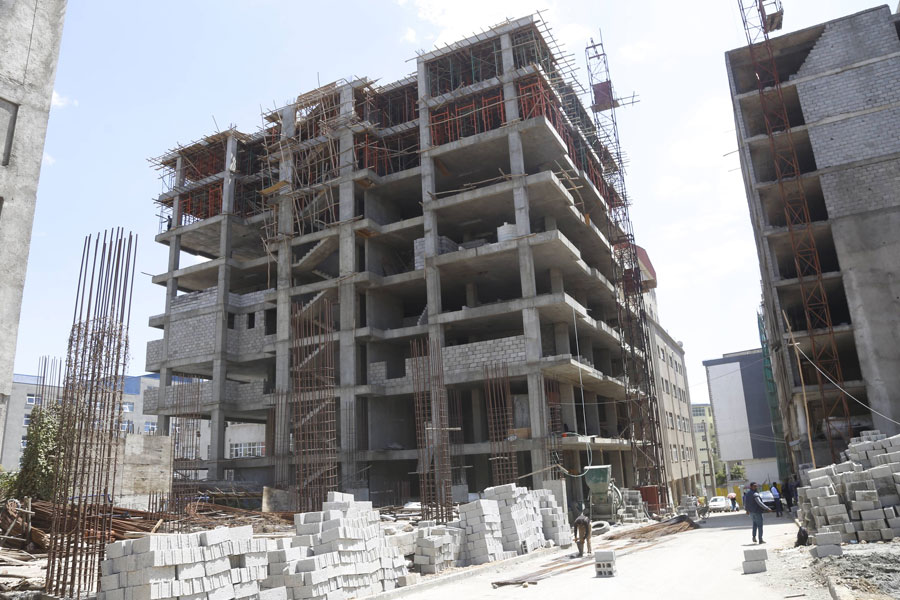
Agenda | Oct 17,2021
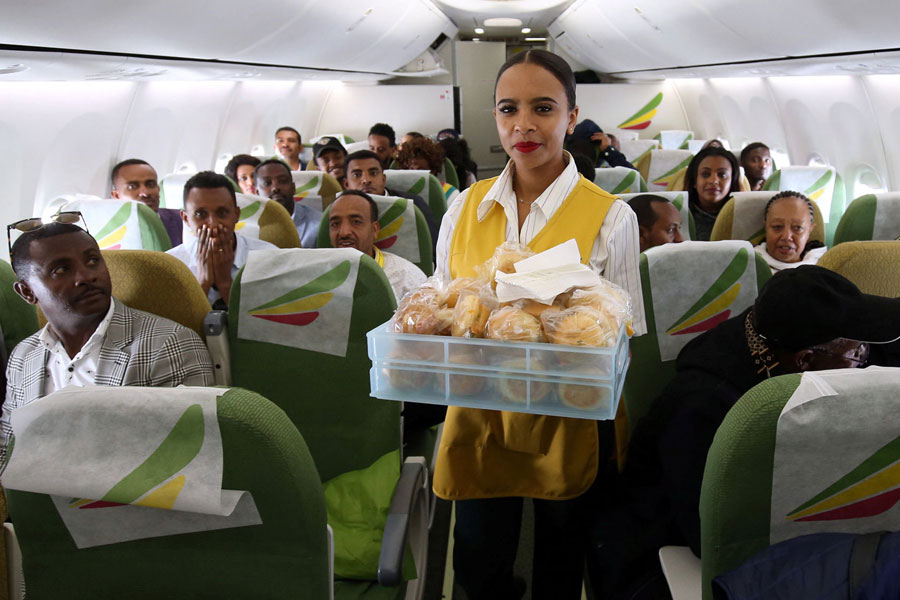
View From Arada | Mar 26,2022

Radar | May 23,2021
Fortune News | May 21,2022

Exclusive Interviews | Jan 05,2020

Editorial | Jan 09,2021
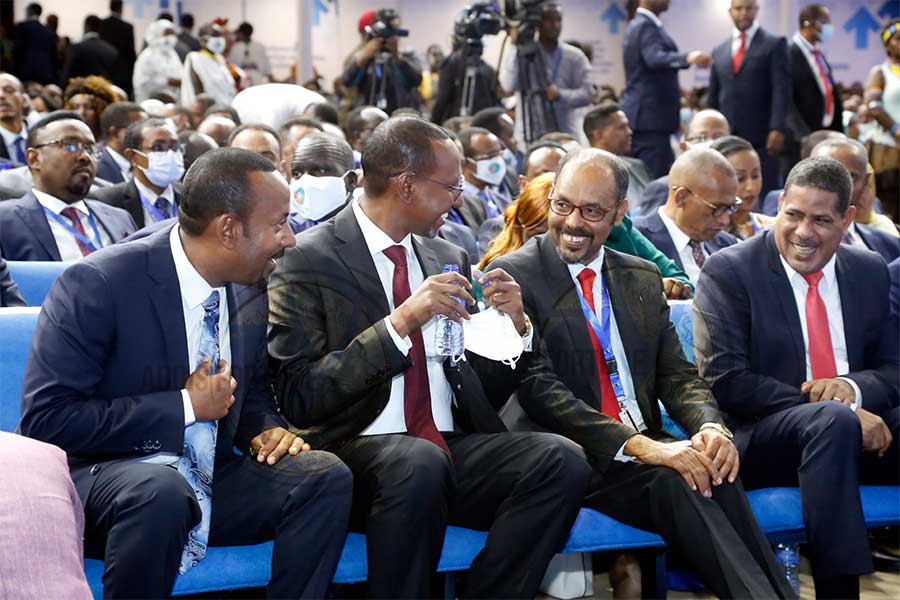
Fortune News | Mar 12,2022

Radar | Dec 19,2021

Viewpoints | May 23,2021

Dec 22 , 2024 . By TIZITA SHEWAFERAW
Charged with transforming colossal state-owned enterprises into modern and competitiv...

Aug 18 , 2024 . By AKSAH ITALO
Although predictable Yonas Zerihun's job in the ride-hailing service is not immune to...

Jul 28 , 2024 . By TIZITA SHEWAFERAW
Unhabitual, perhaps too many, Samuel Gebreyohannes, 38, used to occasionally enjoy a couple of beers at breakfast. However, he recently swit...

Jul 13 , 2024 . By AKSAH ITALO
Investors who rely on tractors, trucks, and field vehicles for commuting, transporting commodities, and f...

Jun 28 , 2025
Meseret Damtie, the assertive auditor general, has never been shy about naming names...

Jun 21 , 2025
A well-worn adage says, “Budget is not destiny, but it is direction.” Examining t...

Jun 14 , 2025
Yet again, the Horn of Africa is bracing for trouble. A region already frayed by wars...

Jun 7 , 2025
Few promises shine brighter in Addis Abeba than the pledge of a roof for every family...